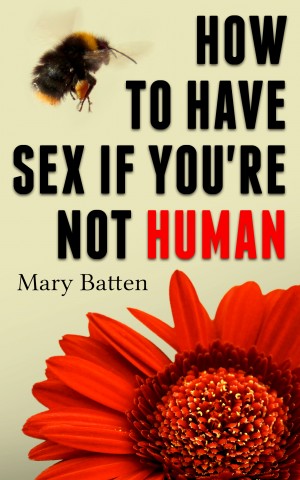Interview with Mary Batten
Published 2016-07-01.
Why do you write nonfiction?
I like real world subjects. Nature/science subjects are particularly exciting because they take me into the wild, wild world of animals and plants. The things that happen in nature are often wilder than anything science writers imagine. For example, some species of fishes routinely change sex. Some plants, particularly orchids, use perfume, nectar, shapes, and colors to seduce insects into transporting their pollen. In the plant world, three isn't a crowd; it's a necessity. Without these complex relationships, plants could not reproduce. I like the beauty and complexity of the intricate interrelationships between animals and plants. I like biology because it is the science of who we are and how we evolved.
Where did you grow up, and how did this influence your writing?
I grew up on a farm in southeastern Virginia. This familiarity with the land, forests, streams, growing crops, and the seasons greatly influenced my writing. I look back on the farm as my first field stations.
When did you first start writing?
When I was around eight years old. I was writing poems and making books. I knew from that early age that I wanted to be a writer.
What's the story behind your latest book?
My two most recent books are both children's science books: BABY ORCA and ALIENS FROM EARTH. BABY ORCA is about a baby killer whale. I have been fascinated by these beautiful animals for a long time. In my work as editor of The Cousteau Society's membership magazine, Calypso Log, I had the opportunity to look at footage of ocras taken by the expedition divers. On one expedition, the underwater cameraman shot footage of two orcas tossing a shark around like cats something play with a mouse they'll eventually eat. Those images set in motion my desire to write a book about orcas one day. This book was published by Grosset & Dunlap/Penguin in 2016.
My other book that came out in 2016 is ALIENS FROM EARTH. This is an update of a book about invasive species that came out originally in 2003, published by Peachtree. It deals with many different invasive species and ways various aliens were introduced into ecosystems where they have no predators. Zebra mussels, African bees (sometimes called "killer bees"), Asian carp, the brown tree snake, kudzu and others are some of the alien species in this book.
How has Smashwords contributed to your success?
Smashwords gave me a professional publishing and distribution platform for creating my own book.
What is the greatest joy of writing for you?
The thrill of discovery. With each book, I explore another corner of nature and behavior. I try to turn on children's excitement about themselves and the world around them.
What do your fans mean to you?
Everything. There's no greater pleasure than hearing someone say, "I really liked your book."
What are you working on next?
More nature/science books, magazine articles, and a memoir.
Who are your favorite authors?
In the nonfiction world, Edward O. Wilson and Stephen Jay Gould. In fiction, Flannery O'Connor, Jhumpa Lahiri, Peter Matthiessen (who wrote both nonfiction and fiction), and Colum McCann.
When you're not writing, how do you spend your time?
Walking, gardening, reading, watching new movies.
Do you remember the first story you ever wrote?
Yes. I wrote it when I was a teenager. It was called "Goodbye to Hooks and Strings," and was about puppets that escape their puppeteers. I submitted it to the children's magazine Jack & Jill, and I received a wonderful, sensitive rejection letter from a very kind editor.
What is your writing process?
It varies by subject and deadline. If a topic requires a lot of research, I spend time doing the research and making notes. Then I start writing.
Do you remember the first story you ever read, and the impact it had on you?
I don't remember the first story I ever read, but the first book that had an enormous impact on me was Thomas Wolfe's novel, Look Homeward, Angel."
What do you read for pleasure?
Fiction.
What is your e-reading device of choice?
My iPad.
Smashwords Interviews are created by the profiled author or publisher.
Books by This Author
How To Have Sex If You're Not Human
by Mary Batten
Despite all our love songs and romantic fantasies, reproduction is the name of the game in biology. All forms of life are genetically programmed to reproduce. Nothing is off limits so long as it produces babies. Animals—plants, too—“do it” in wild, bizarre ways. Some reef fishes change sex. Plants trick pollinators into doing their sexual bidding. Everything strives to pass on its genes.

